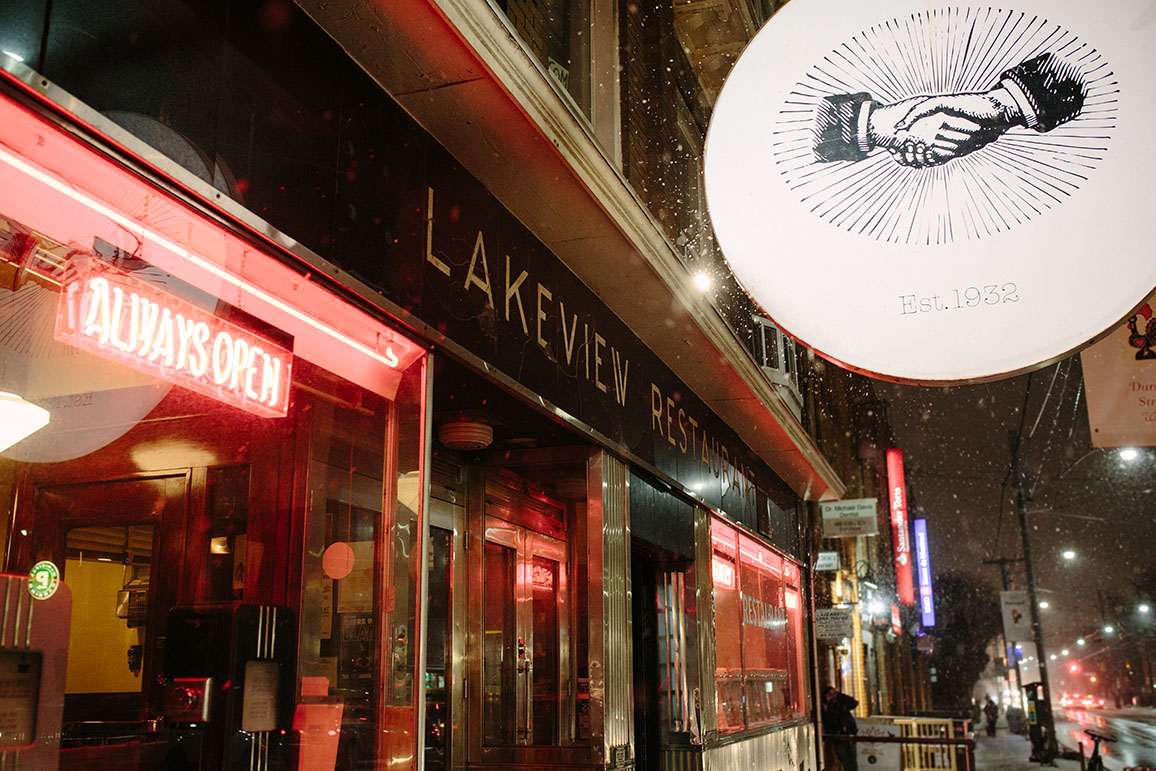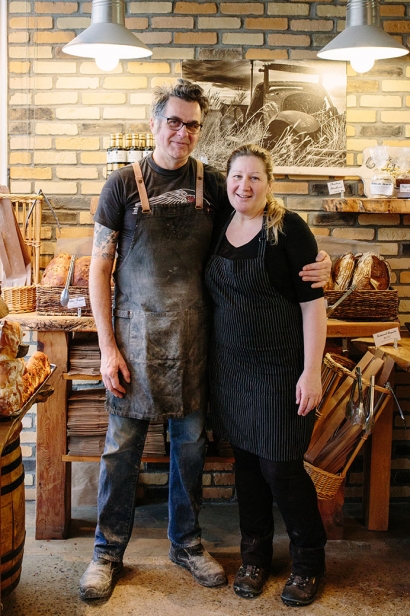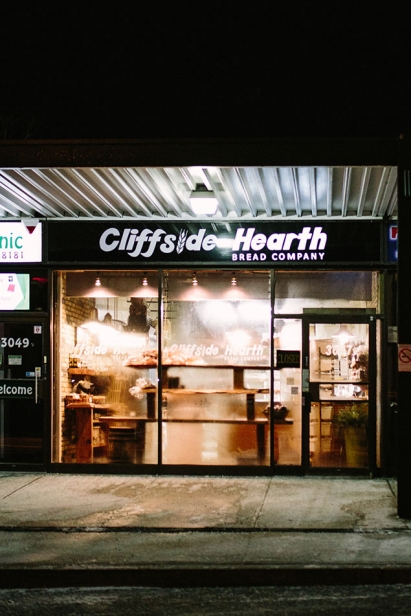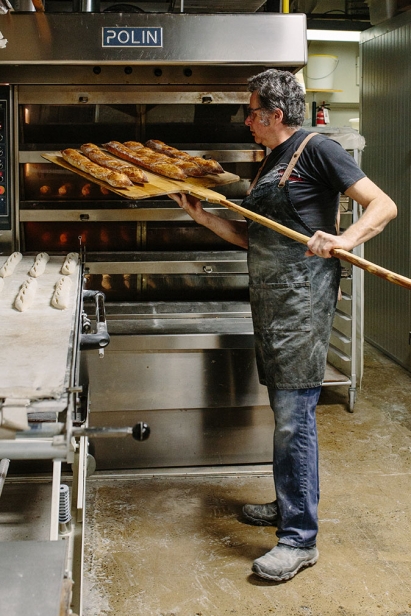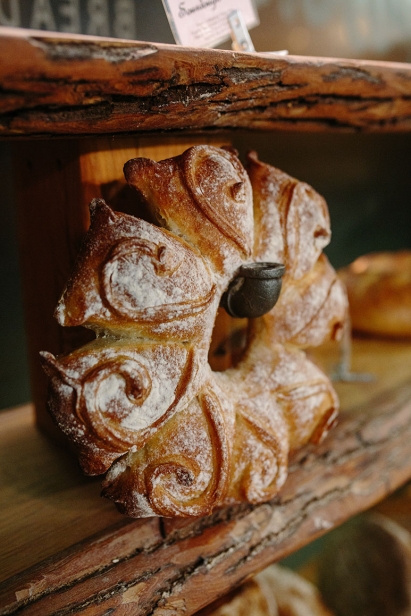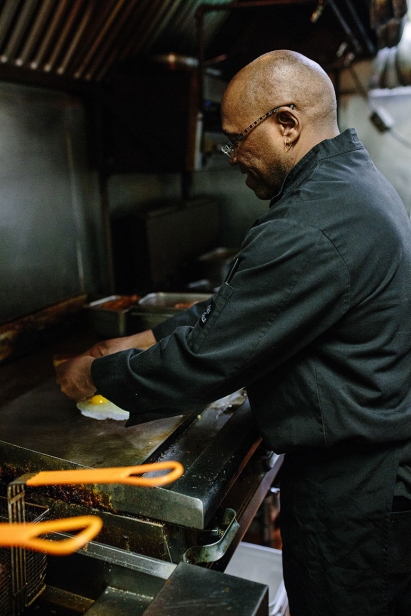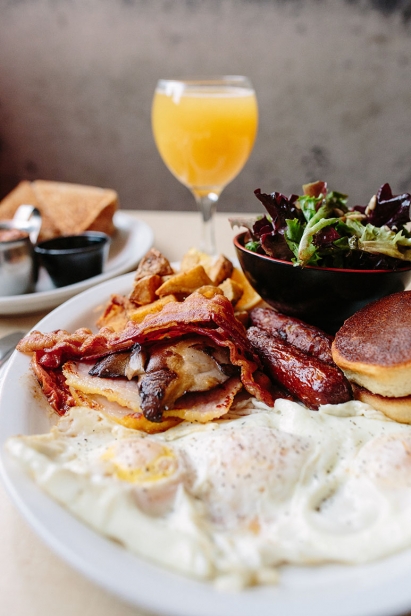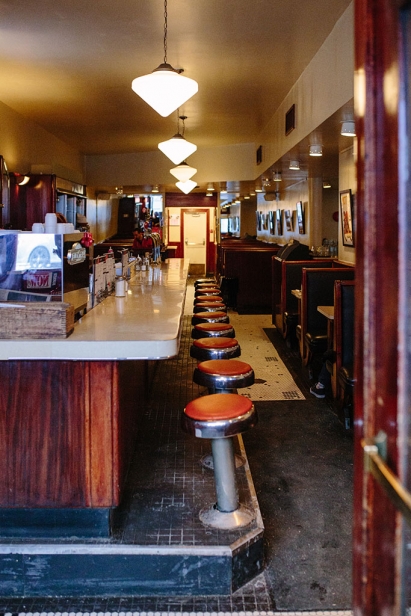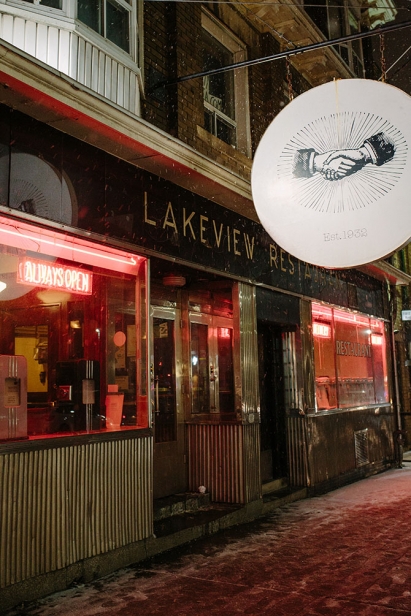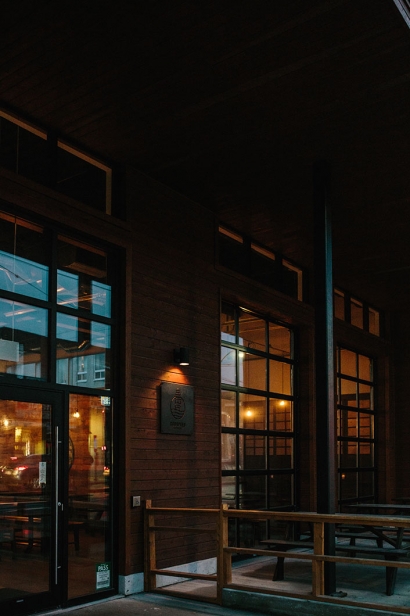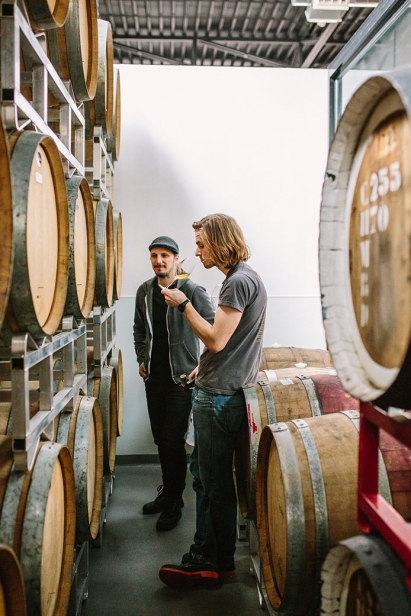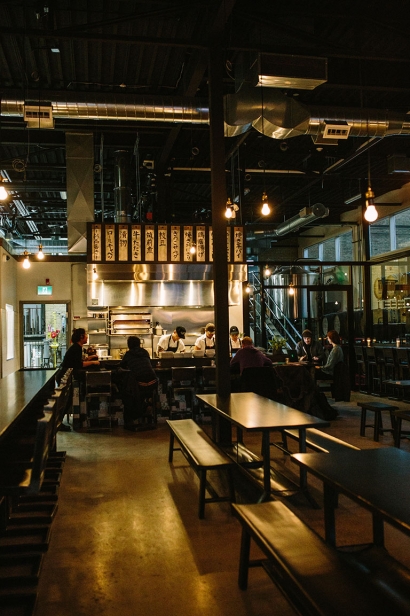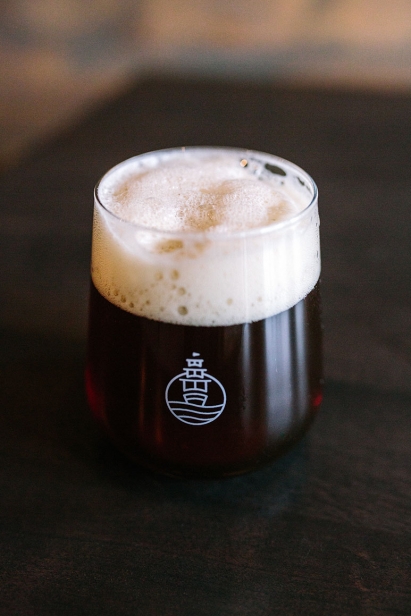While You Were Sleeping
There is a romance about all who are abroad in the black hours, and with something of a thrill we try to guess their business,” the novelist Robert Louis Stevenson once wrote. The idea of working in darkness does hold a certain intrigue, especially for those of us who work nine to five. But inside Toronto’s small kitchens, restaurants and breweries, an army of nighttime workers is ensuring everyone else’s needs are met for the next day.
When the sun sets, they rise — often working alone. Here are the stories of a baker, server and brewer who share one thing in common — they rarely see the light of day at the start of their shift.
Our daily bread
It’s 2 a.m, and baker David Aplin has just begun his work day. As the head baker at Cliffside Hearth Bread Company in Scarborough, which he owns with his wife Camelia Proulx, Aplin is one of the hundreds of people in Toronto’s food and hospitality industry who works at night.
Mixing dough, baking loaves and fermenting batches for the following day, Aplin completes 80 per cent of his baking before the store opens at 9 a.m. and ends his shift mid-morning.
His work is time-consuming. Using traditional methods of artisan baking, he works with his hands to stretch, fold and shape up to 20 different types of dough. The loaves ferment leisurely inside the folds of canvas and linen sheets — sometimes up to 48 hours — resulting in well-developed texture and flavours.
Throughout his shift, multitasking is essential.
“The oven is running the whole time with various things going in and out, not just breads,” says Aplin, whose menu includes everything from traditional baguettes to chocolate cherry sourdough, sweet and savoury pastries and all kinds of desserts.
For him, the biggest challenge is achieving and maintaining a consistent product.
“Making good bread is a laborious, repetitive task that requires endurance and a commitment to detail,” he says
“Making good bread is a laborious, repetitive task that requires endurance and a commitment to detail,” he says.
Aplin describes his early morning shift as “a very busy time with much juggling, constant prioritizing and re-prioritizing, especially with regards to the temperature in the bakery.”
During the winter, the cold weather makes the dough rise slowly, but in the humid summer months, it’s a constant battle to prevent dough from over-proofing.
When the loaves are finally ready for their final transformation, he slashes them with a razor and bakes them on the stone hearth. The entire bread-making process requires minimal equipment: a mixer, a wooden table and a hot oven. Aplin recognizes that highly mechanized production equipment, increased investment and a larger production space with more employees could speed up productivity, but he’s firm in his belief that the flavour and quality of the finished bread would suffer when not hand-crafted in small batches under his scrupulous care.
And Aplin acknowledges that any successful commercial kitchen or bakery needs collaboration and co-operation, but, he explains, that doesn’t always come easily.
“A lot of bakers that I know, including myself, have a difficult time in a group. All of us are what I would call ‘singular characters’ or lone wolves. We prefer to work by ourselves at night, we are social misfits a lot of the time and dislike any authority reigning down over us.“
As outliers, we need space and time to focus on producing whatever it is we're capable of. We're never going to be star chefs or celebrities.”
Cliffside Hearth Bread Company
3047 Kingston Rd., Toronto, Ont.
cliffsidehearth.com, 416.261.1010
24-hour food service
Michael Morgan is a server at The Lakeview Restaurant, one of Toronto’s oldest and most beloved diners. Located on Dundas Street West across from Trinity Bellwoods Park, the 24-hour restaurant serves up brunch, burgers, sandwiches and poutine, 365 days of the year.
Working the evening shift for more than three years, Morgan has seen his share of late nights — starting his shift at 6 p.m. and working until the end of the last bar rush, which is often when the sun comes up.
He likes the fast pace of working at night, the relaxed atmosphere of guests who are just out to have a good time and how quiet everything is in the early hours of the morning when his shift is over.
But for him, working at night doesn’t come without its hardships.
“You do the same things everybody else does, but at different hours and days of the week. The biggest challenge is re-organizing your life,” Morgan says.
Struggles include “making sure you still get enough sunlight, maintaining relationships with your nine-to-five friends, getting stuff done during the day and not just sleeping it away because you went to bed at 7:30 a.m.”
These days, Morgan works a mix of day and night shifts, but says the vibe is the most interesting after dark.
“Strange and funny are par for the course when working in a 24-hour place. Lots of interesting characters come in late at night. Funny stuff, like people trying to barter some of their clothing for food because they lost their wallet at the bar they were at before, or running into people that you haven't seen in a decade is commonplace,” he recalls. “Once, there were a couple of different groups of musicians in the restaurant who started an impromptu jam session in my section. It would have been really annoying, if they weren't so talented.
The Lakeview Restaurant
1132 Dundas St. W., Toronto, Ont.
thelakeviewrestaurant.ca, 416.850.8886
A brewer’s life
Luc “Bim” Lafontaine, a brewer for nearly 30 years, is the former head of Montreal’s Brasserie Dieu du Ciel! and currently runs Godspeed Brewery, a 140-seat brewpub in a former dollar store on Coxwell Avenue. After starting his beer menu with a stout, an IPA and a lager, his brews have become more and more imaginative, starting with creations such as the Transatlantic Pale Ale, which includes grains, hops and yeast from Canada, England, France and the U.S.
Creativity aside, Lafontaine believes that the key to being a successful brewer is flexibility. “A brew day or cellar cycle of any beer can change from one time to another,” he explains.
“In our start-up, we had brew days as long as 40 hours straight where it should have been taking us 12 hours. It's sometimes very frustrating, but that's the brewer's life. Never tell your girlfriend or wife that you will be done in one hour, because it might actually be three or four or more.”
Lafontaine says it’s better to start making beer very early in the day because of his brewery’s open environment — brewing in off-hours minimizes noises, smells and bright production lights during pub hours when customers are present.
While overnight brews aren’t an everyday occurrence, Lafontaine notes that late night beer-making happens sometimes because he’s had no other choice. Once the process begins and the timer is on, there is no way he can stop the brew until it’s in the fermenter, which can result in 30- to 40-hour brewing periods.
“So much fun,” he quips.
For Lafontaine, the best part of brewing at night is the silence. “It feels so much more peaceful than during the day. The most enjoyable moment is when the sun rises and brings all those beautiful colours through the pub’s windows. These moments are precious in my brewer’s life.
Godspeed Brewery
242 Coxwell Ave., Toronto, Ont.
godspeedbrewery.com, 416.551.2282


